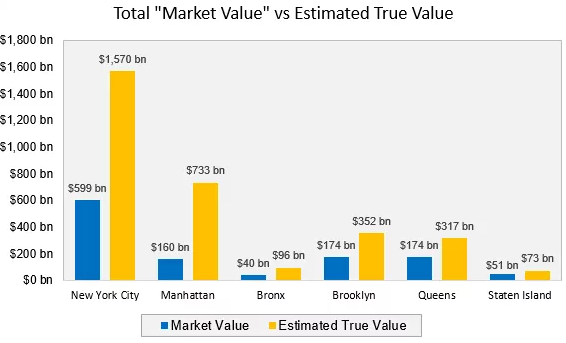During the campaign for the recent Greek referendum, something inexplicable happened. The Greek leader Tsipras suddenly offered a compromise proposal that he said was very close to the proposal of the creditors. Tsipras was campaigning for a no vote, but this move seemed to support the yes position. Very odd. His supporters were very upset. In email correspondence with Tyler Cowen, I mentioned my confusion. He suggested that there might be nested games being played, perhaps Tsipras secretly prefers a yes vote. Then on Tuesday Ambrose Evans-Pritchard reported this bombshell:
Instead they were confronted with a text from the creditors that upped the ante, demanding a rise in VAT on tourist hotels from 7pc (de facto) to 23pc at a single stroke.
Creditors insisted on further pension cuts of 1pc of GDP by next year and a phase out of welfare assistance (EKAS) for poorer pensioners, even though pensions have already been cut by 44pc.
They insisted on fiscal tightening equal to 2pc of GDP in an economy reeling from six years of depression and devastating hysteresis. They offered no debt relief. The Europeans intervened behind the scenes to suppress a report by the International Monetary Fund validating Greece’s claim that its debt is “unsustainable”. The IMF concluded that the country not only needs a 30pc haircut to restore viability, but also €52bn of fresh money to claw its way out of crisis. . . .
Syriza has been in utter disarray for 36 hours. On Tuesday, the Greek side turned up for a make-or-break summit in Brussels with no plans at all, even though Germany and its allies warned them at the outset that this is their last chance to avert ejection.
The new finance minister, Euclid Tsakalotos, vaguely offered to come up with something by Wednesday, almost certainly a rejigged version of plans that the creditors have already rejected.
That was a very pessimistic article, but I saw a possible upside—both sides actually might want a deal. On Wednesday I linked to the article and commented:
If so, is a deal still possible?
Then commenter Mike Sax pointed out that Varoufakis once linked to an article by Evans-Pritchard, praising it lavishly. Interestingly, the new Evans-Pritchard piece reflects some of the views held by Varoufakis. Could he be a source?
And then global stock markets started rallying. Today the BBC has this report, entitled “Athens Capitulates to Creditors”:
Not for the first time over the five years of Greece’s euro crisis – or the eurozone’s Greece crisis – I am confused.
My confusion stems from the proposals for tax, benefit and economic reform submitted by the Greek government to secure, at the very last minute of the last hour, a deal from their creditors to avoid tumbling out of the euro.
Having obtained a copy of this paper, headed“Greece: Prior Actions – Policy Commitments and Actions to be taken in consultation with the EC/ECB/IMF staff”, it feels very familiar.
That familiarity stems from its great similarity to the bailout proposals put to Greece by the creditors – the eurozone governments, the European Central Bank and the IMF – last month.
Pretty much everything wanted by the creditors is there – with the odd tweak or softening, but nothing which looks as though it ought to be noxious to them.
So there is a pledge for budget surpluses rising in steps to 3.5% of GDP or national income by 2018; VAT would be raised to three rates of 23% (the standard rate), 13% (for food, energy, hotels and water) and 6% (for medicine and books) – increases that would raise revenue equivalent to 1% of GDP; and Athens is eating the dust of comprehensive reforms of pensions to make them more affordable; and so on.
So here’s why I am a bit baffled.
Only a few days ago the Greek prime minister Alexis Tsipras won an overwhelming mandate from the Greek people, in a referendum, to reject more-or-less these bailout terms.
And today, on the back of that popular vote, he is signing up to the supposedly hated bailout.
This is big politics that would make Lewis Carroll proud.
Or Mel Brooks. It would be like selling the same play 10 times over to 10 investors. The play would have to be so bad that it would definitely fail, and then you pocket all their money. But what if it succeeded?
It’s too soon to say any of this is true. But each hour that goes by I am more and more convinced that this prediction will somehow turn out accurate:
Does it sound like Syriza was telling the truth? Will the Greeks now negotiate a better deal? Or did they not even bother presenting an offer because they knew the game is over and Grexit is approaching? I’m not sure, but within a week we’ll probably know the truth. My hunch is that a month from now this won’t be viewed as a “victory for democracy.”
Not my view that Grexit was likely, but rather the prediction that in the end this won’t be seen as a victory for democracy. Some very subtle games are being played here on both sides. To think that voters could suddenly be thrust in the middle of these complex games, with no understanding of what’s really going on, and less than the legally required two weeks to analyze the situation, and make a helpful contribution to the negotiations, seems increasingly utopian. I love referenda, but this isn’t how it’s supposed to be done.
Again, this entire post is speculation; I have no information beyond the opinions linked to above.
PS. If a deal is reached it will be very good news for the global economy–there was danger of a deflationary shock. But it won’t be good news for Greece, indeed in some ways the worst of all possible worlds. The socialists will still be in power, reluctant to do neoliberal reforms, and there’s no silver lining of a boost to NGDP coming from devaluation. Overall I’m happy if there’s a deal because I care most about global welfare—but with a tinge of sympathy for the Greeks.






